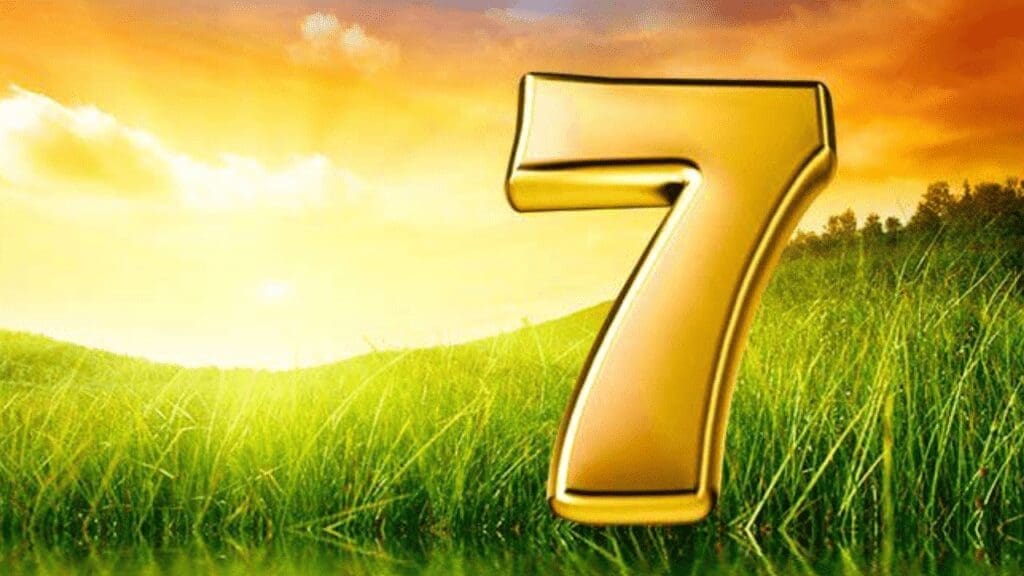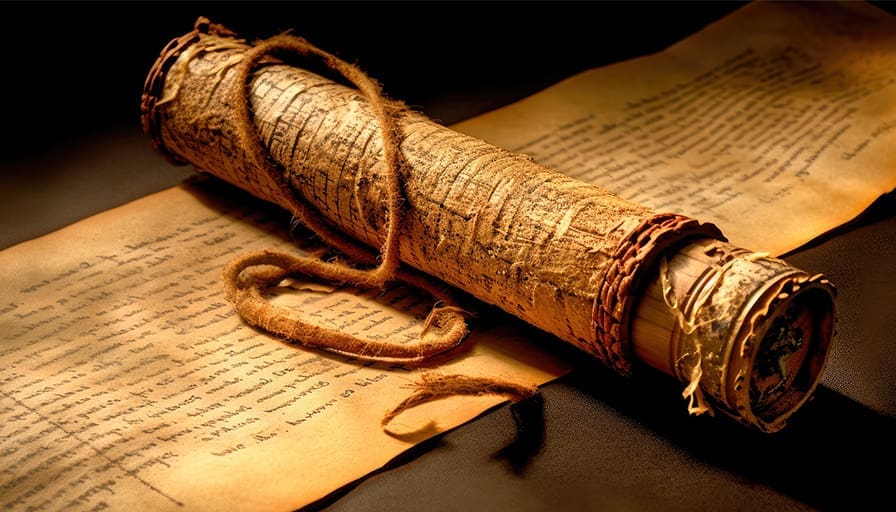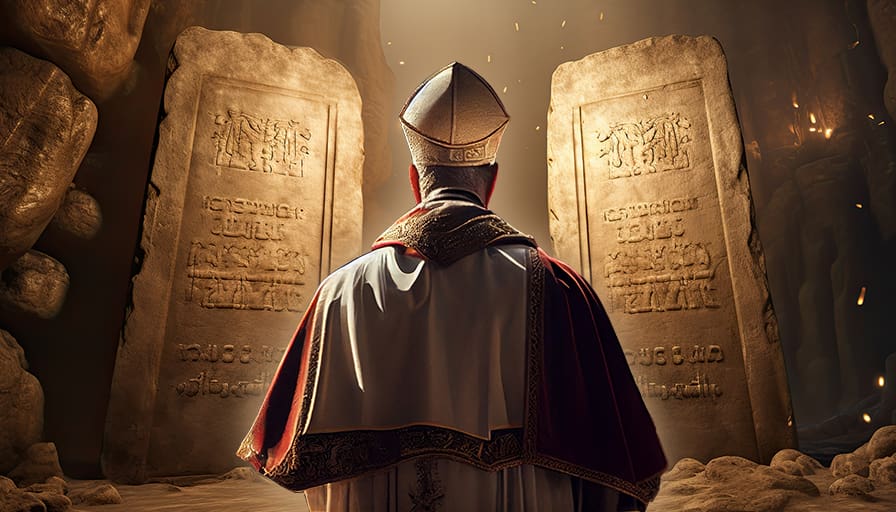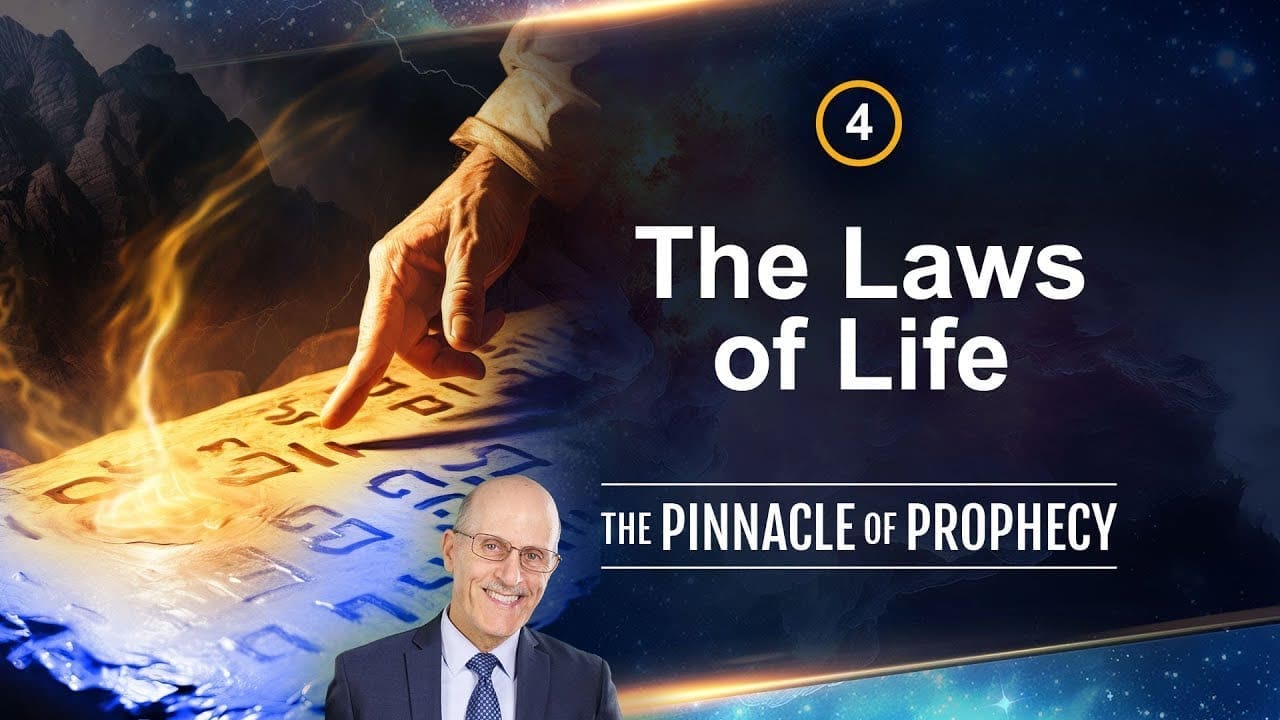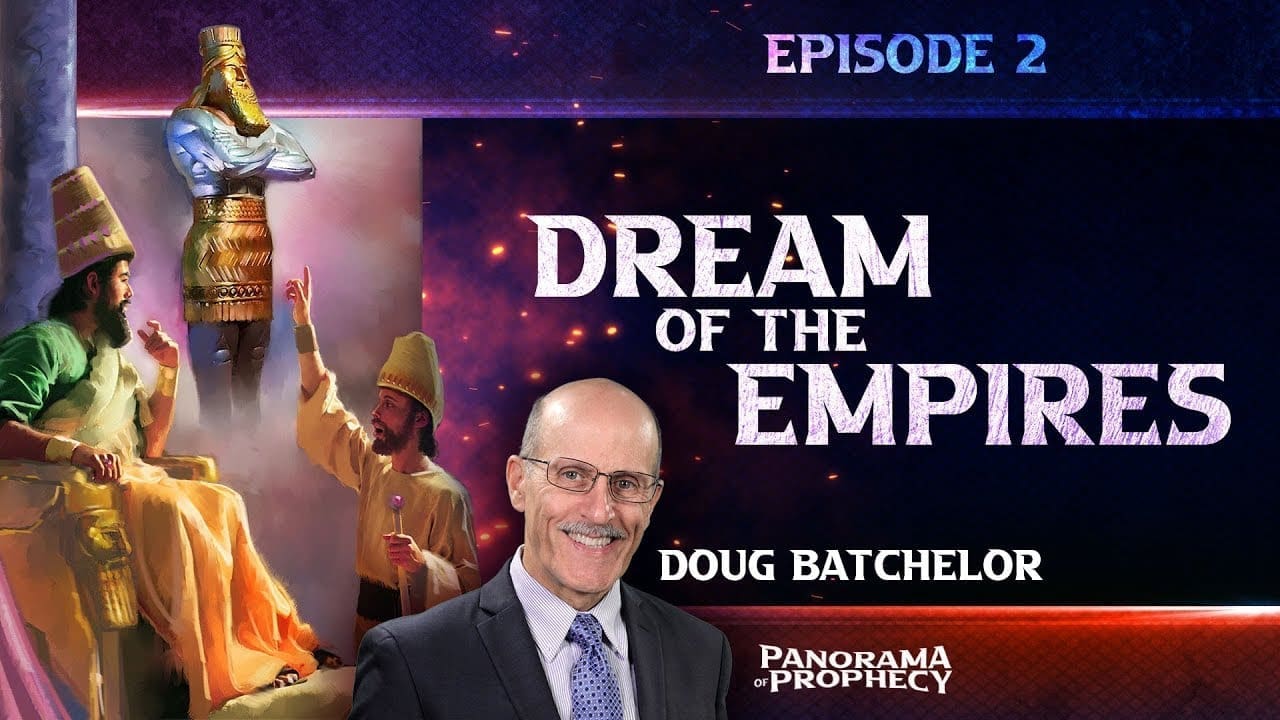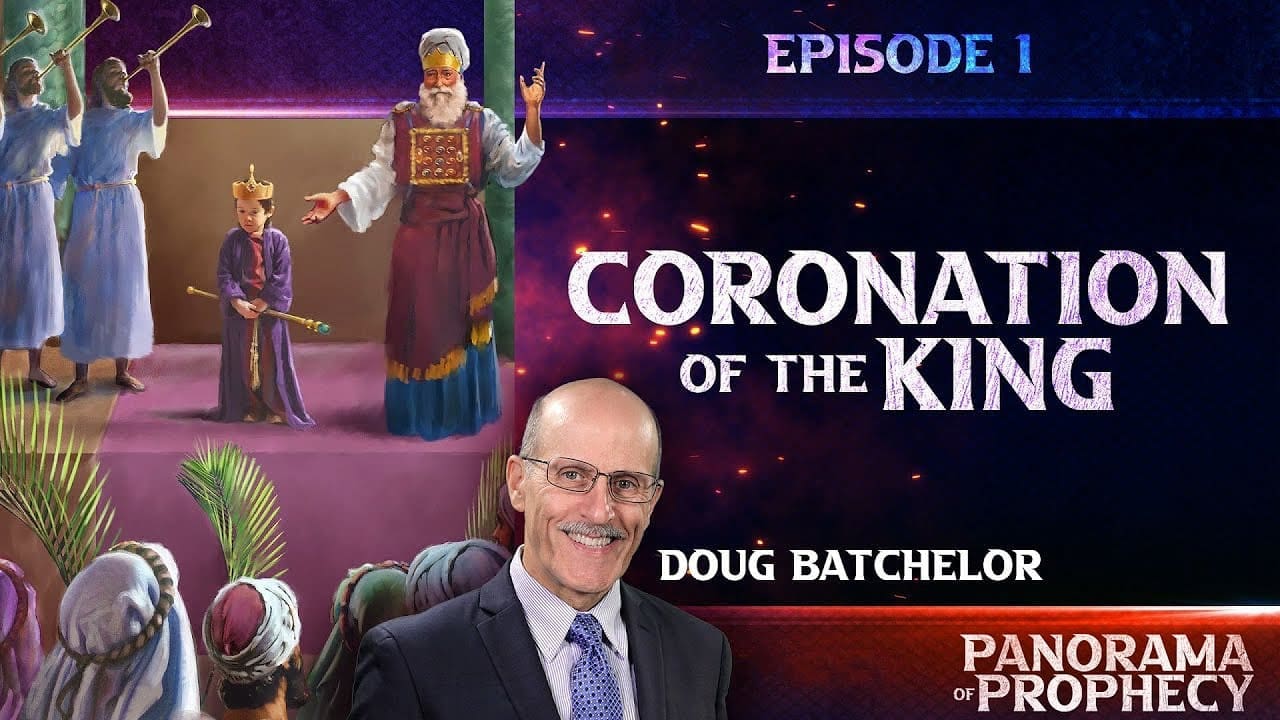Part of Satan’s strategy to destroy humanity’s trust in God has been to attack His claim as the Creator. Clearly, the theory of evolution is a part of this deceptive and soul-destroying effort. With its amoral humanistic focus, Darwin’s doctrine has led millions to become religious skeptics and has clouded their understanding of the need for the Saviour.
However, while many Christians rightly denounce this unscientific belief, ironically, many still fall into the devil’s trap of denying God’s sovereignty over the earth. This trap is the long-standing effort to distort and undermine the observance of the seventh-day Sabbath.
Through Satan’s dissemination of false information and people’s reliance on traditions rather than the unwavering Word of Scripture, millions of Christians have been led to disregard or even reject the significance of observing the Sabbath. “The seventh day is the Sabbath of the Lord: … on it, you shall not do any work” (Exodus 20:10). No one disputes the clear meaning of this text, yet millions find ways to avoid following it.
Why? The general lack of biblical knowledge within the church and the clever arguments of Satan have created a bias against the sanctity of the seventh day in favour of observing Sunday. So, in the interest of upholding God’s law above human theories, let’s take a moment to rediscover some astonishing facts about the seventh-day Sabbath.
Fact #1:
The Seventh-day Sabbath Establishes God’s Sovereignty Why does Satan despise the Sabbath so intensely? Because the Sabbath identifies the true God and His rightful claim of supreme command.
God foresaw the controversy surrounding the Genesis account of Creation. He knew that after the fall of humanity, doubts would arise regarding His ability to create the vast cosmos with a mere command.
To protect His sovereignty, God established a sign that signifies His absolute authority as Lord. He chose to memorialize His display of creative power by setting apart the seventh day of the Creation week as a holy day of rest and remembrance.
God wrote these words: “Remember the Sabbath day, to keep it holy. Six days you shall labour, and do all your work, but the seventh day is a Sabbath to the Lord your God. On it you shall not do any work… For in six days the Lord made heaven and earth, the sea, and all that is in them… therefore the Lord blessed the Sabbath day and made it holy” (Exodus 20:8–11).
As the earth rotates through space once a week, the Sabbath reminder travels across the globe, reaching every individual with the message of creation and the One who brought it into being.
Why did God say “remember”? Because forgetting the true Sabbath means forgetting the true Creator.
Does it truly matter so much? Refer to “The One Unimportant Commandment?” below.
Fact #2:
The Seventh-day Sabbath Was Made for Everyone Many Christians mistakenly label God’s fourth commandment as the “Jewish Sabbath.” However, this expression is not found anywhere in the Bible. The seventh day is called “the Sabbath of the Lord,” and it is never referred to as “the Sabbath of the Jews” (Exodus 20:10).
Luke, a Gentile writer of the New Testament, often mentions things specific to Jewish culture. He writes about the “nation of the Jews,” “the people of the Jews,” “the land of the Jews,” and the “synagogue of the Jews” (Acts 10:22; 12:11; 10:39; 14:1). Yet, he never refers to the “Sabbath of the Jews,” although he repeatedly mentions the Sabbath.
Jesus Himself taught that “the Sabbath was made for man” (Mark 2:27). Adam and Eve were the only human beings when God established the Sabbath. Jews did not exist until 2,000 years later, so the Sabbath was never intended exclusively for them. Jesus uses the term “man” in a generic sense, referring to all humanity. The same word is used in connection with the institution of marriage, which was also introduced at Creation. Surely, no Christian believes that marriage was meant solely for the Jews.
Fact #3:
It’s Not Just About Observing Any Day Every word of God’s Ten Commandments was inscribed by His own hand on stone. Each word carries weight and meaning. There is no ambiguity in any of them. Sinners and Christians, educated or uneducated, are not confused by the words “seventh day.” So why do they disregard those words when every other commandment is considered binding?
Satan desires the world to accept Sunday as the day of worship he has chosen, but any day will suffice for him if it means breaking God’s command.
Genesis describes the origin of the Sabbath as follows: “Thus the heavens and the earth were finished, and all the host of them. And on the seventh day God finished his work that he had done, and he rested on the seventh day from all his work that he had done. So God blessed the seventh day and made it holy, because on it God rested from all his work that he had done in creation” (Genesis 2:1–3).
Which day did God bless and make holy? The seventh day. How was it to be kept holy? By resting. Could any of the other six days be sanctified? No, because God commanded work on those days. Does God’s blessing make a difference? Absolutely. Parents pray for God’s blessing on their children because they believe it makes a difference. The seventh day is distinct from the other days because it carries God’s blessing.
Has God ever given humans the privilege to choose their own day of rest? No. In fact, God affirms in the Bible that the Sabbath is a matter settled and sealed by His divine power. Read Exodus 16. For 40 years, God performed three miracles every week to show Israel which day was holy: (1) No manna fell on the seventh day; (2) the manna would spoil if kept overnight; (3) but when they kept manna over the Sabbath, it remained fresh and sweet!
Yet, some Israelites had the same idea as many Christians have today. They believed that any day out of seven would be acceptable for observing as holy: “On the seventh day some of the people went out to gather, but they found none.” What happened? “And the Lord said to Moses, ‘How long will you refuse to keep my commandments and my laws?'” (Exodus 16:27, 28).
God confronted them and accused them of breaking His law by working on the seventh day. Would God say the same to those who break the Sabbath today? Yes. He remains the same yesterday, today, and forever (Hebrews 13:8).
But why the seventh day specifically? See “Why the Seventh Day?” below.
Fact #4:
We Know the True Seventh Day Some reject the observance of the seventh-day Sabbath by claiming that we cannot accurately tell which day it falls on today, suggesting that choosing any day would be acceptable. However, this is a fallacy. Here are four proofs that establish the true Sabbath.
1: According to Scripture, Jesus died on Friday and rose on Sunday, the first day of the week. Almost all churches recognize this by observing Easter Sunday and Good Friday. “This man went to Pilate and asked for the body of Jesus. Then he took it down and wrapped it in a linen shroud and laid him in a tomb cut in stone, where no one had ever yet been laid. It was the day of Preparation, and the Sabbath was beginning. The women who had come with him from Galilee followed and saw the tomb and how his body was laid. Then they returned and prepared spices and ointments. On the Sabbath they rested according to the commandment” (Luke 23:52–56).
This is clear evidence that Jesus died on the day before the Sabbath! The day of His death was a “preparation day” because it was the time to get ready for the Sabbath. Notice that the women rested on the Sabbath “according to the commandment.” The commandment states, “The seventh day is the Sabbath,” so we know they were resting on Saturday. The very next verse says, “But on the first day of the week, at early dawn, they went to the tomb, taking the spices they had prepared… And they found the stone rolled away from the tomb” (Luke 24:1, 2).
2: The calendar has not been altered to confuse the days of the week. Just as we know that Jesus and His followers observed the same day as Moses, we can be certain that our seventh day is the same day Jesus observed. Pope Gregory XIII made a calendar change in 1582, shifting Friday, October 5, 1582, to Friday, October 15, 1582. However, this change did not affect the weekly cycle of days.
3: The Jews have observed the seventh day from the time of Abraham, and they continue to keep it to this day. A whole nation, spread across the world, has faithfully observed a weekly Sabbath for over 4,000 years.
4: Over 100 languages on Earth use the word “Sabbath” for Saturday. For instance, the Spanish word for Saturday is “Sábado,” meaning Sabbath. What does this demonstrate? It shows that when these languages originated long ago, Saturday was recognized as the Sabbath day and incorporated into the very name of the day.
Fact #5:
The Sabbath Is Not a Memorial of Deliverance from Egypt Some suggest that God gave the Sabbath as a memorial of the Exodus from Egypt, based on this passage: “You shall remember that you were a slave in the land of Egypt, and the Lord your God brought you out from there with a mighty hand and an outstretched arm. Therefore, the Lord your God commanded you to keep the Sabbath day” (Deuteronomy 5:14, 15).
However, this belief distorts the purpose of the Sabbath. The Genesis account of the Sabbath’s establishment (Genesis 2:1–3) and the wording of the fourth commandment by God (Exodus 20:11) reveal the seventh-day Sabbath as a memorial of creation.
The key to understanding these two verses lies in the word “servant.” God said, “Remember that you were a slave in the land of Egypt.” And in the previous sentence, He reminds them that “your male servant and your female servant may rest as well as you.” In other words, their experience in Egypt as slaves would remind them to treat their servants justly by granting them Sabbath rest.
God often referred to the deliverance from Egypt as an incentive to obey other commandments. In Deuteronomy 24:17, 18, the Bible says, “You shall not pervert the justice due to the sojourner or to the fatherless, or take a widow’s garment in pledge, but you shall remember that you were a slave in Egypt and the Lord your God redeemed you from there; therefore, I command you to do this.”
Neither the command to be just nor the command to keep the Sabbath was given to memorialize the Exodus. God simply reminded them that His goodness in delivering them from captivity provided a strong reason to treat their servants kindly on the Sabbath and to act justly towards strangers and widows.
Similarly, God spoke to them in Leviticus 11:45, saying, “I am the Lord who brought you up out of the land of Egypt… you shall therefore be holy.” No one would argue that holiness did not exist before the Exodus or that it should be limited only to the Jews thereafter!
Fact #6:
The Sabbath Does Not Memorialize the Resurrection While it is true that Jesus rose on a Sunday, the Bible never suggests that we should observe Sunday as a holy day. Many other significant events occurred on specific days of the week, but we have no command to sanctify them either.
There is, of course, a memorial of the resurrection commanded in the Bible, but it does not establish a new day of worship. Paul wrote: “We were buried therefore with him by baptism into death, in order that, just as Christ was raised from the dead by the glory of the Father, we too might walk in newness of life” (Romans 6:4). Baptism serves as the memorial of Christ’s death, burial, and resurrection. However, the Sabbath serves as the memorial of creation.
Do you still have questions about this? Refer to “The Upper Room” below.
The Sabbath Will Be Celebrated for Eternity The Sabbath is a significant arrangement of God that holds great meaning and purpose. It serves as His claim and seal over the world and all human life. It is also a sign of the redemption that He offers to each of us.
This is precisely why God intends to preserve Sabbath keeping throughout eternity. Yes, it is written, “For as the new heavens and the new earth, which I will make, shall remain before me, says the Lord, so shall your seed and your name remain. And it shall come to pass, that from one new moon to another, and from one Sabbath to another, all flesh shall come to worship before me, says the Lord” (Isaiah 66:22, 23).
The Sabbath is so precious to God, and He desires His people to observe it throughout all time, even in the beautiful new earth that is to come. If it holds such value to Him, shouldn’t it be precious to us as well? If we are going to keep it for all eternity, why not keep it now as our pledge of obedience to Him?
Trust and Obey: There Is No Other Way
It is evident why the devil has waged an ongoing and desperate battle against the seventh-day Sabbath. He has manipulated the pride of tradition, spread misinformation, and fostered religious bias to undermine the sanctity of God’s special sign of authority—the Sabbath.
However, armed with these Sabbath facts, may God grant every Christian the courage to honour the Sabbath commandment as a special test of our love and loyalty.
While it may be our duty to keep the seventh day holy, it should not be viewed as a burden. In an era of false gods and spiritual confusion, of atheistic evolution and stubborn adherence to human traditions, the world needs the Sabbath now more than ever. It is more than just a test of our loyalty to the Creator; it is more than just a sign of our sanctification through His power. It is a promise from God of lasting and eternal restoration.
More Interesting Facts!
The One Unimportant Commandment?
God has made it abundantly clear that those who disregard the Sabbath are guilty of breaking His law. James explains that even if we keep the entire law but stumble at just one point, we are transgressors of the entire law. He says, “For whoever keeps the whole law but fails in one point has become guilty of all of it. For he who said, ‘Do not commit adultery,’ also said, ‘Do not murder.’ If you do not commit adultery but do murder, you have become a transgressor of the law” (James 2:10, 11).
Most of the commandments begin with the same words, “You shall not.” However, the fourth commandment is introduced with the word “Remember.” Why? Because God knew that this commandment would be forgotten by many.
Why the Seventh Day?
Why did God bless the seventh day as a day of worship? It is because He had just created the world in six days. The Sabbath serves as a memorial to the birth of the world—a reminder of that mighty act.
So, can the Sabbath memorial be changed? No, because it points back to an accomplished fact. For example, Independence Day in the United States is celebrated on July 4. Can it be changed? No, because it commemorates the signing of the Declaration of Independence on July 4, 1776. Similarly, your birthday cannot be altered; it memorializes your birth, which occurred on a specific day. History would need to rewind to change your birthday, Independence Day, or the Sabbath day. While we can assign another day as Independence Day or call another day the Sabbath, it does not change the fact.
The Upper Room
Some individuals argue that Sunday worship honours the resurrection of Jesus, citing the disciples’ gathering in the upper room on the day of His resurrection. They claim that this meeting was intended to celebrate His resurrection. However, the biblical account of the event reveals a different set of circumstances.
Mark writes that even though the disciples were presented with Mary’s eyewitness account, they did not believe. Jesus appeared in another form to two of them, and they went and told the rest, but they were also not believed. Afterwards, Jesus appeared to the eleven disciples as they sat at a meal, rebuking them for their unbelief and hardness of heart because they did not believe those who had seen Him after He had risen (Mark 16:11–14).
Clearly, none of the disciples in the upper room believed that Jesus had been raised from the dead. They were gathered out of fear of the Jews, as John explains, “The doors were shut where the disciples were assembled for fear of the Jews” (John 20:19).


